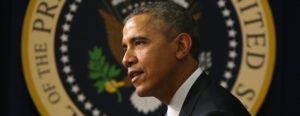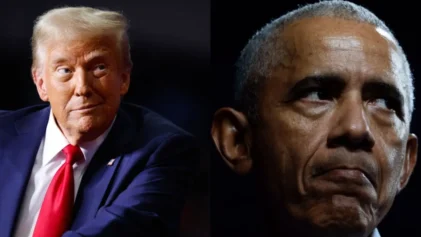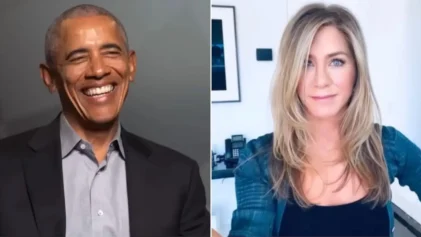
Obama is embarking on a four-nation trip that includes Belgium, Italy and Saudi Arabia. Along with his efforts to isolate Russia with sanctions, Obama on the trip is also meeting with Chinese President Xi Jinping, their first face-to-face meeting since a G20 summit in Russia. In an effort to defuse tensions between the Asian powerhouses before Obama visits Asia in April, he will be participating in a three-way summit with Japanese Prime Minister Shinzo Abe and South Korea President Park Geun-Hye during this visit.
The U.S. president is meeting today at The Hague with fellow leaders of the Group of Seven industrial democracies. Clearly, the most urgent order of business will be getting the European allies to agree to tougher sanctions on Russia. With their still fragile economies, the EU members are likely to be afraid of going too far—particularly since Russia provides almost a third of the EU’s gas needs. About 40 percent of the gas is shipped through Ukraine, which is in danger of being overtaken by Moscow.
“Europeans are committed to do something,” Jeffrey Mankoff, a Russian analyst at the Center for Strategic International Studies, told Reuters. “I think it’ll be difficult to convince them to go anywhere near where the United States would like to go.”
Ukrainian officials have told the BBC that Russian troops seized control of a Crimean naval base at Feodosia, which was the third such attack in 48 hours.
Using armored personnel carriers and stun grenades, the Russians attacked the base from two directions, according to Ukraine Defense spokesman Vladislav Seleznyov.
As of now, Russia has taken over most of Ukraine’s military bases in Crimea.
The Russian aggression has forced the G7 group of industrialized countries to consider a collective response in their meetings at The Hague. While Obama has ruled out military action, Sen. John McCain (R-Arizona) has called on the U.S. and its allies to help supply the Ukrainian military and to bolster forces around NATO countries on the border with Russia or close to Ukraine.
Russian President Vladimir Putin is staying away from the G7 talks, sending his foreign minister instead.
“Our interest is not in seeing the situation escalate and devolve into hot conflict,” White House national security adviser Susan Rice told reporters. “Our interest is in a diplomatic resolution, de-escalation, and obviously economic support for Ukraine, and to the extent that it continues to be necessary, further costs imposed on Russia for its actions.”
While Obama already has imposed sanctions on 31 Russian officials with links to Putin, he is also prepared to launch widespread penalties against key sectors of Russia’s economy, such as its energy industry, should Putin move into southern or eastern Ukraine.
In Brussels on Wednesday, Obama will talk about ways to beef up NATO with NATO Secretary General Anders Fogh Rasmussen and then will deliver a speech at Brussels’ Palais des Beaux Arts to focus on the importance of the transatlantic alliance.
“Obviously, the situation in the Ukraine will factor heavily into his presentation. It only reinforces the need for the United States to remain committed to a strong transatlantic alliance,” said Ben Rhodes, the White House deputy national security adviser.
In an opinion piece in the New York Times, Michael A. McFaul, a former ambassador to Russia in the Obama administration, sounded an optimistic note.
“The United States — together with Russians who want to live in a prosperous and democratic Russia — will win this new conflict in Europe,” he wrote. “Over the last century, democracies have consolidated at a remarkable pace, while autocracies continue to fall. Especially in educated, rich, urban societies like Russia, democracy eventually takes hold. A democratic Russia will not always define its interests as we do, but will become a more stable partner with other democracies. We cannot say how long the current autocratic government in Russia will endure. But a sober, realistic strategy to confront this new threat will help to shorten the tragic era we just entered.”


